University Case Study: Virtual Team Management in Diverse Settings
VerifiedAdded on 2022/08/27
|5
|810
|22
Case Study
AI Summary
This case study explores the challenges and successes of virtual team management, focusing on a scenario where a virtual team leader, Rebecca, struggles to foster effective communication and collaboration among team members from diverse cultural backgrounds. The case highlights issues such as communication gaps, reluctance to share information, and the impact of cultural differences on work styles and trust. The analysis delves into how cultural factors, such as hierarchical work environments and data protection concerns, affect team dynamics. The study emphasizes the importance of cultural awareness, personal communication, and establishing clear processes to overcome barriers in virtual teams. It underscores the need for leaders to adapt their approach, build personal connections, and create comfortable virtual spaces for team members to enhance productivity and achieve team goals, referencing various academic sources on virtual team management and cultural aspects in the workplace.
1 out of 5
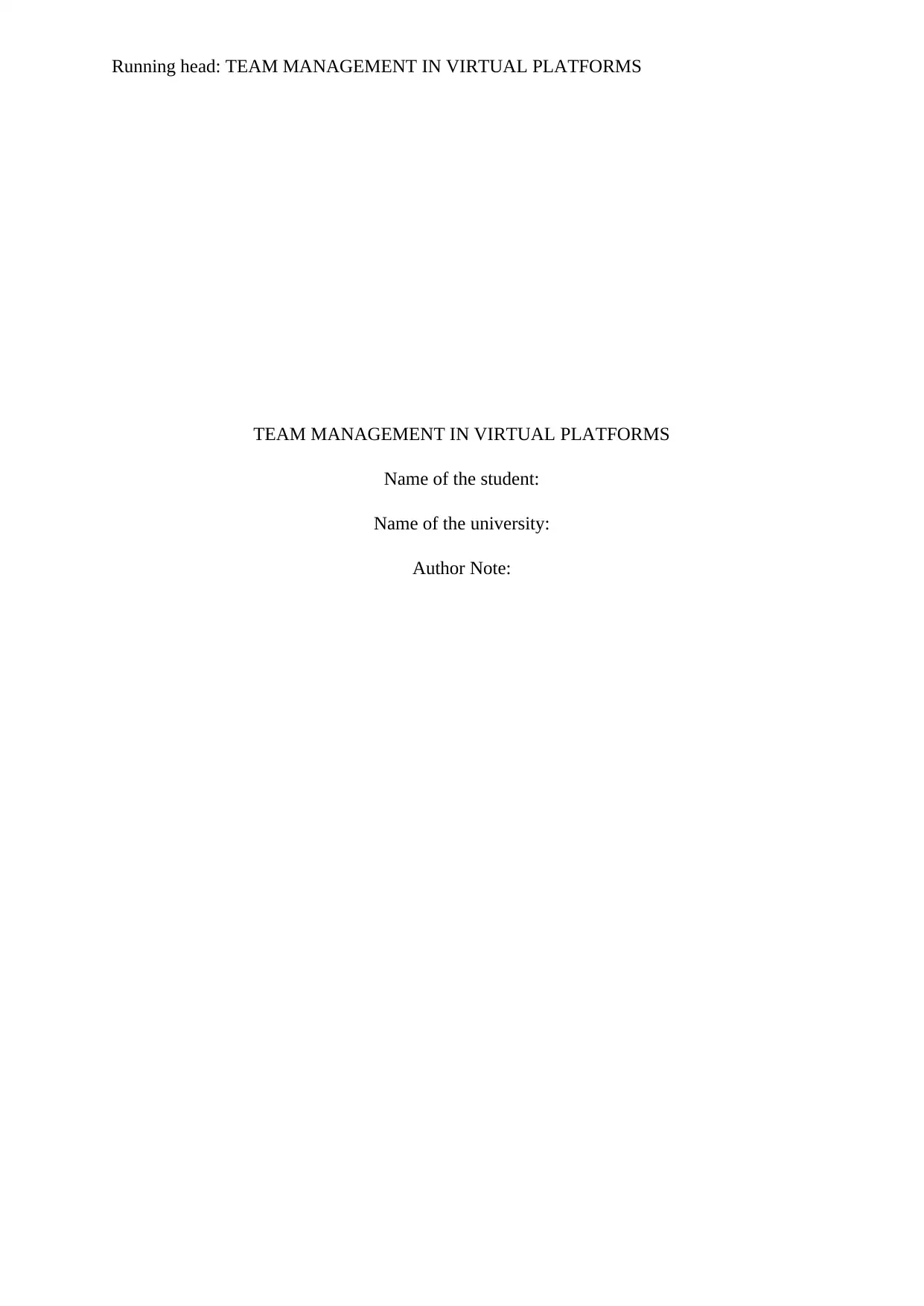
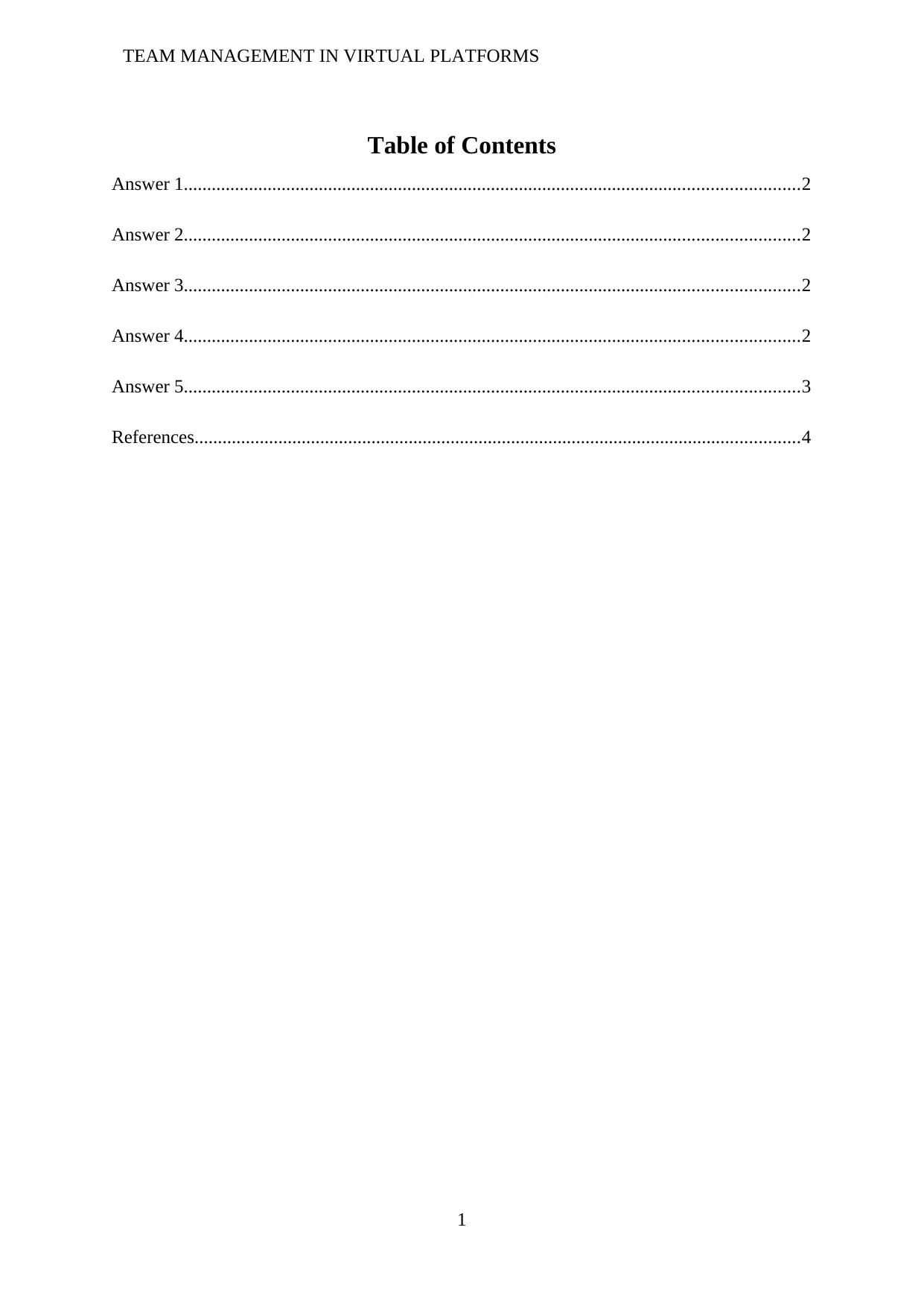
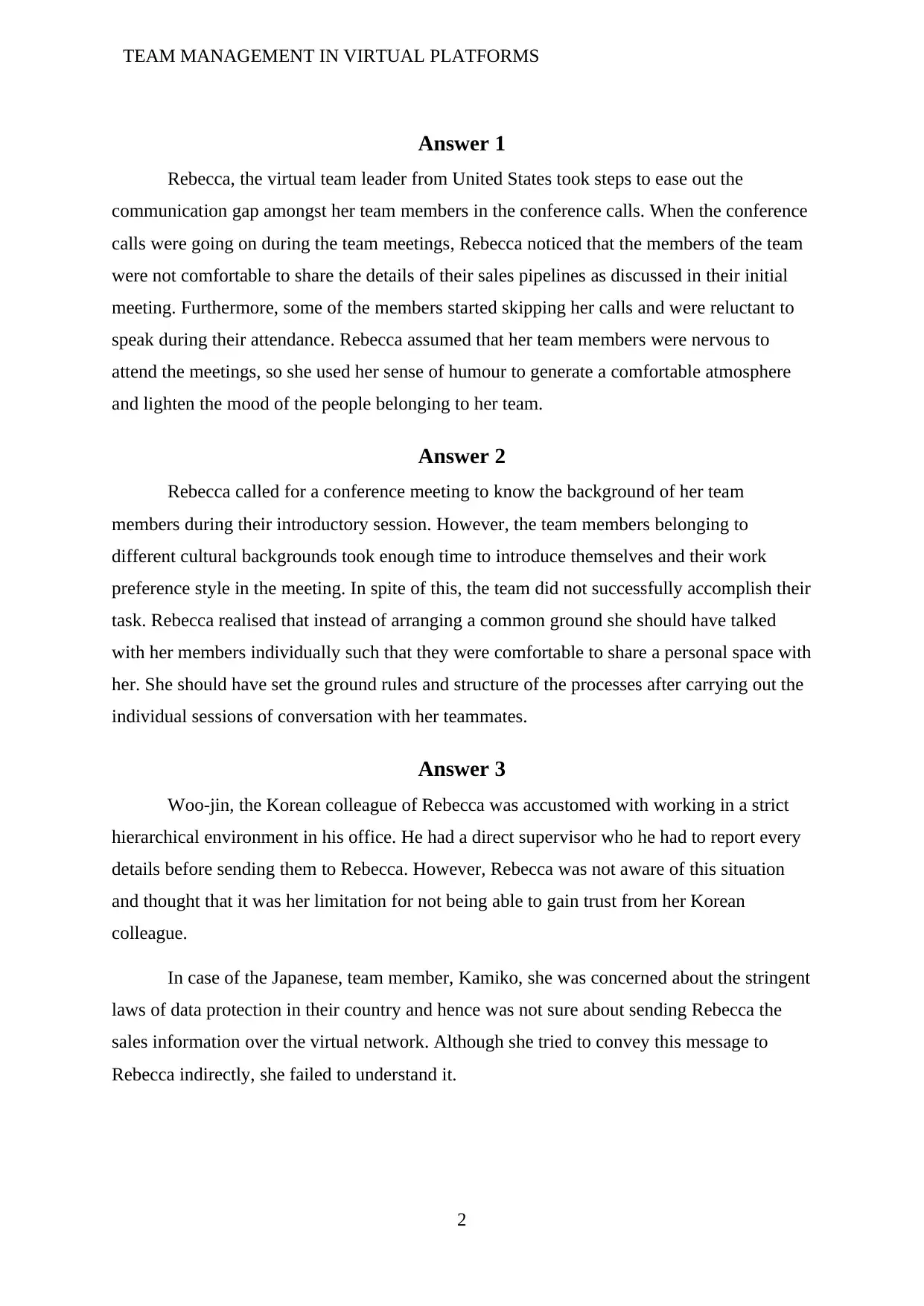

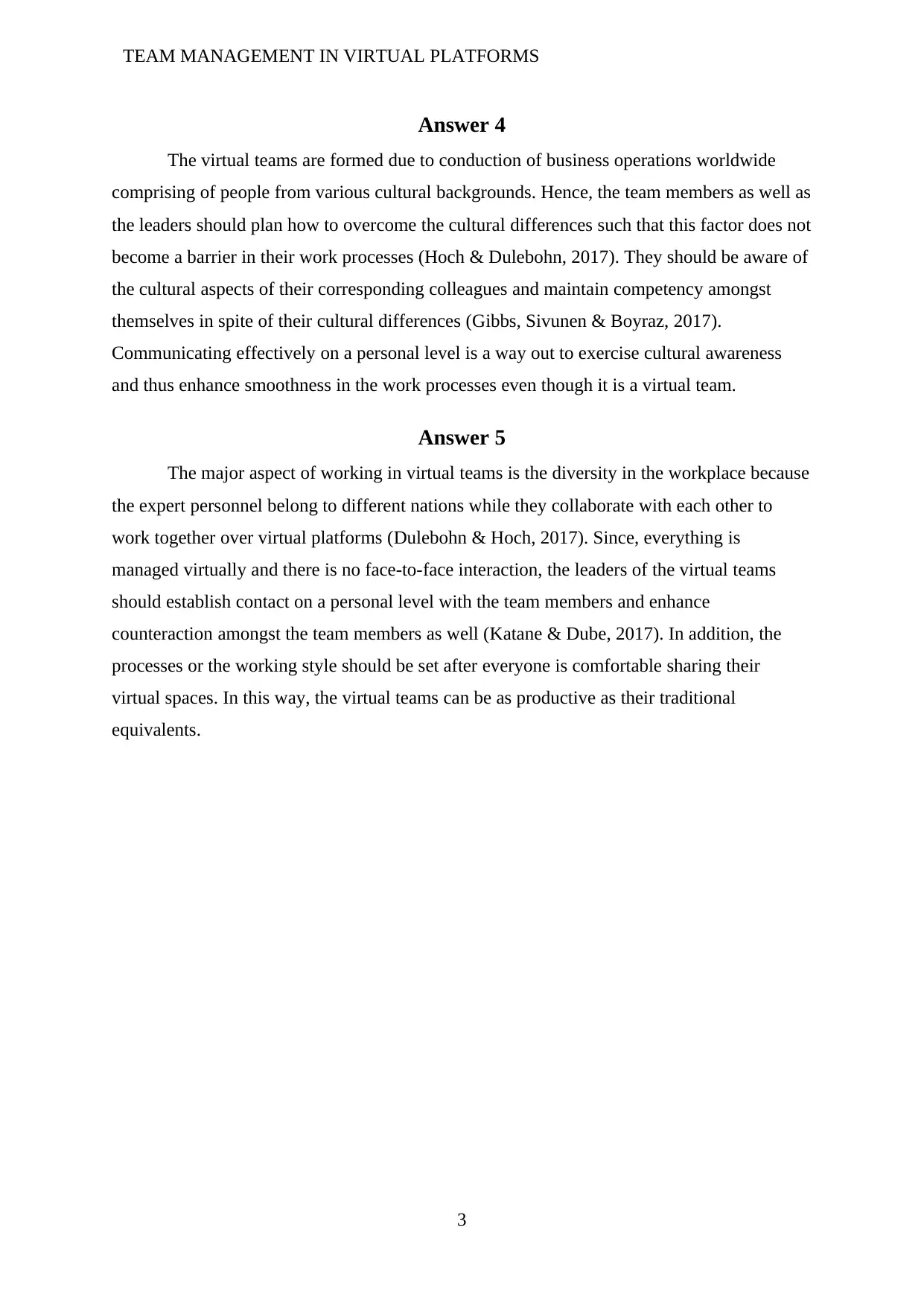
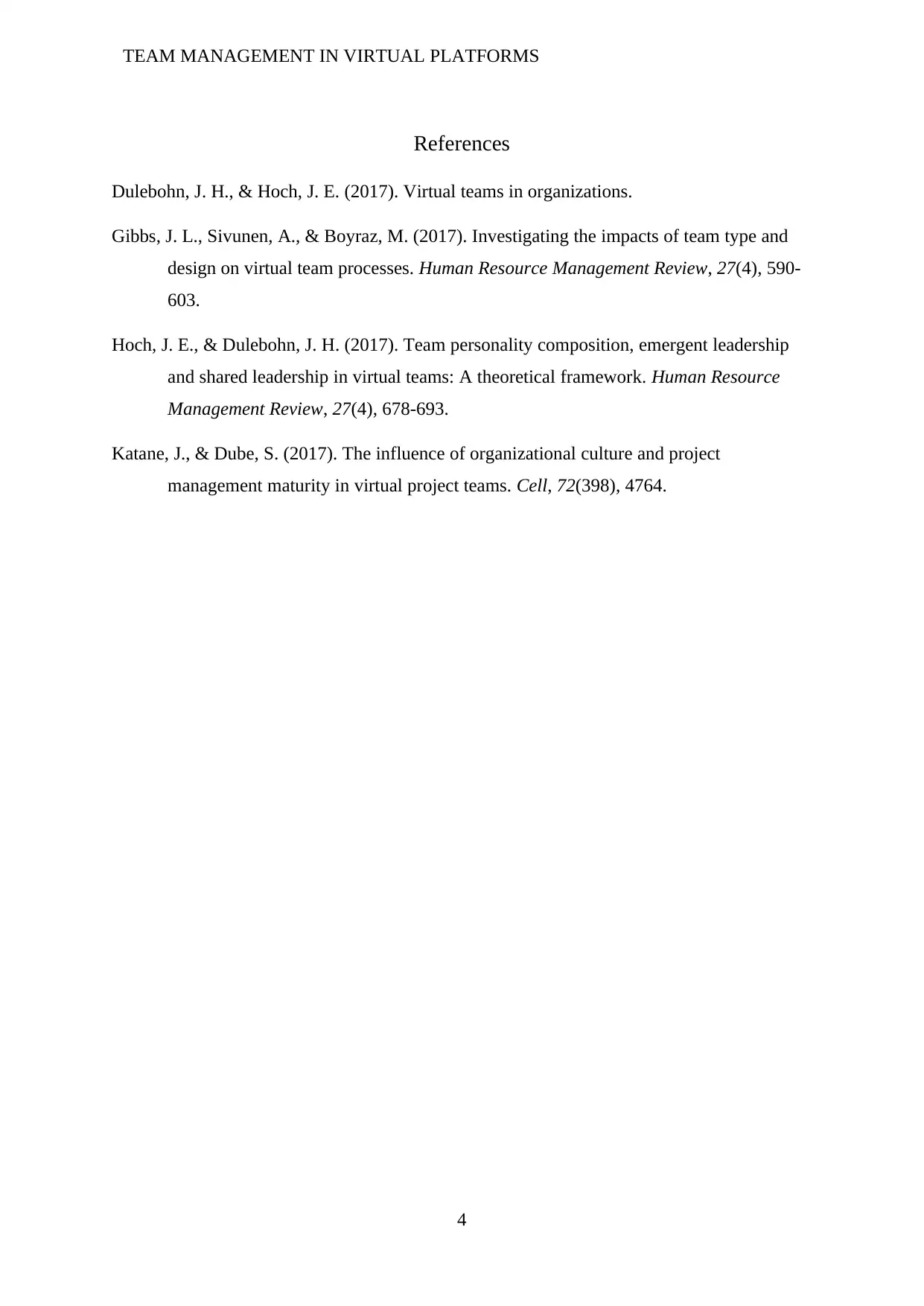





![[object Object]](/_next/static/media/star-bottom.7253800d.svg)